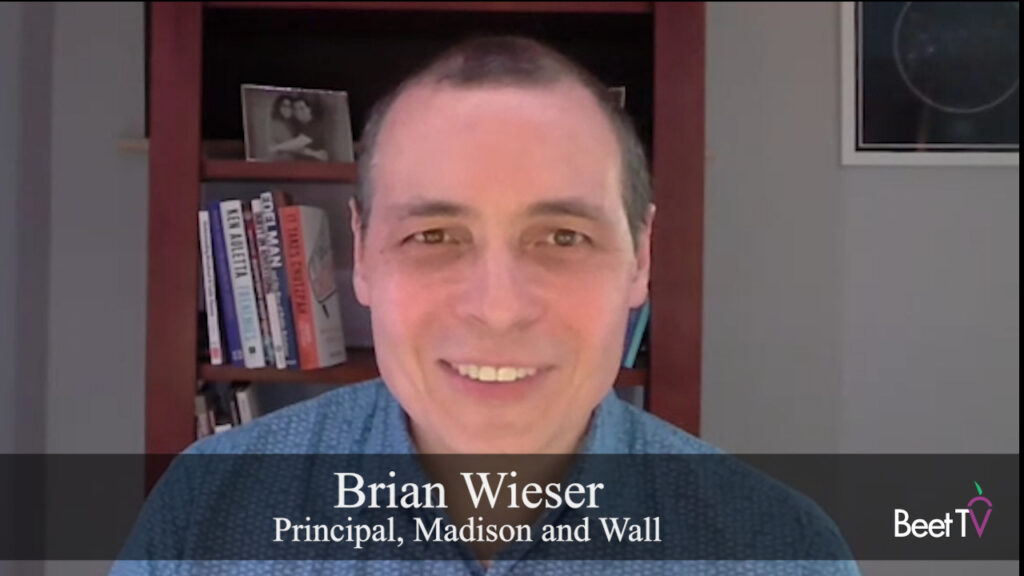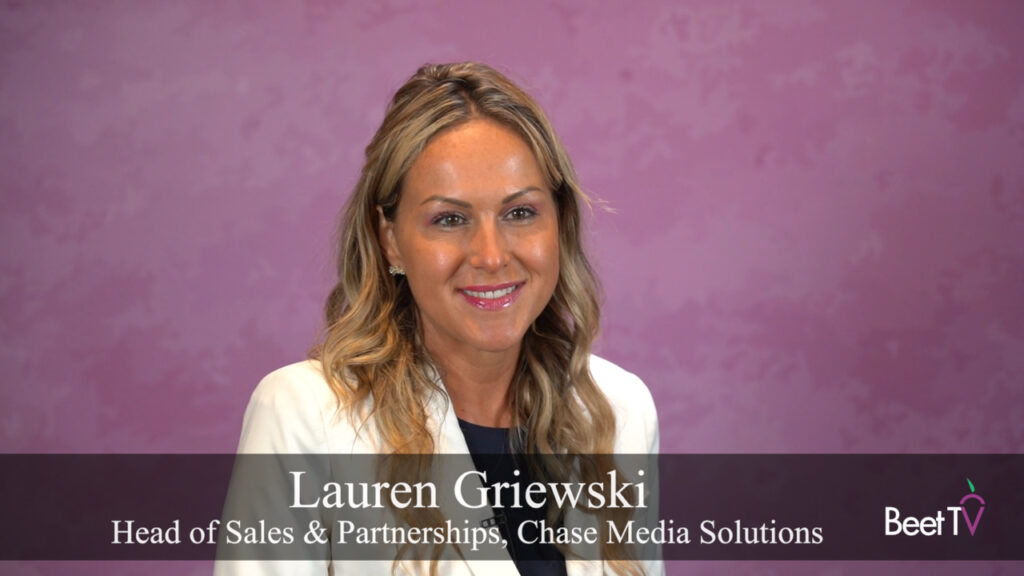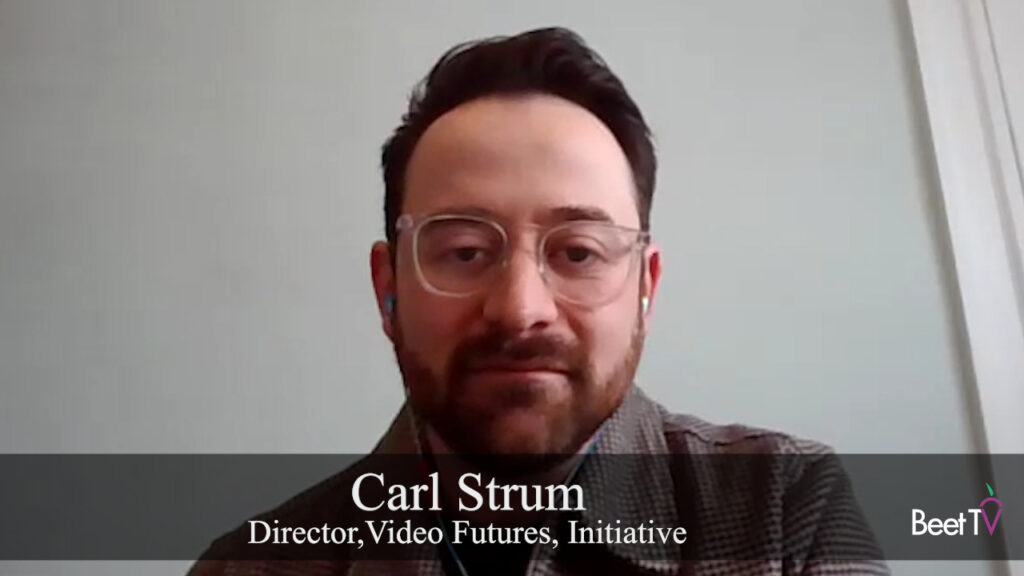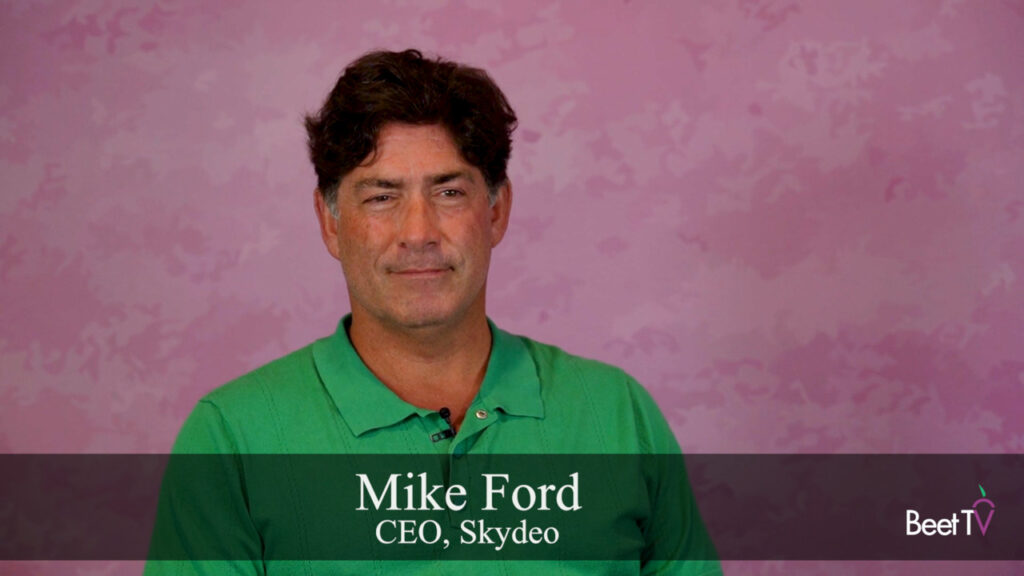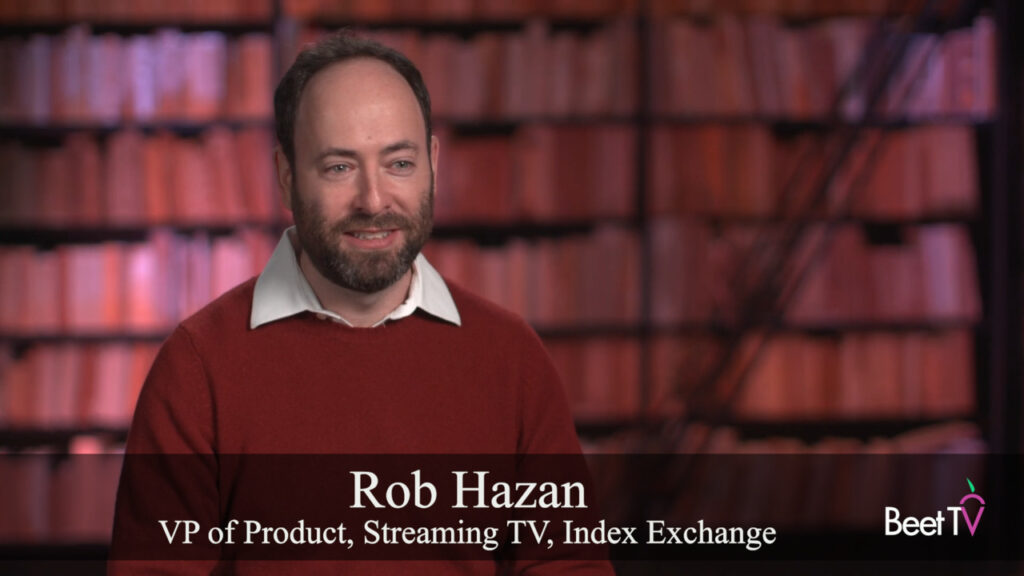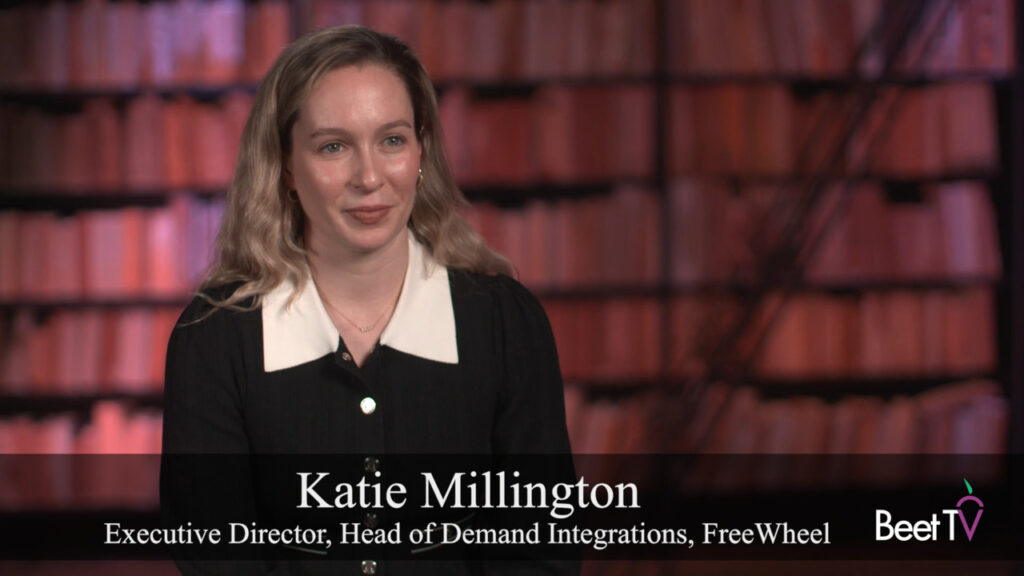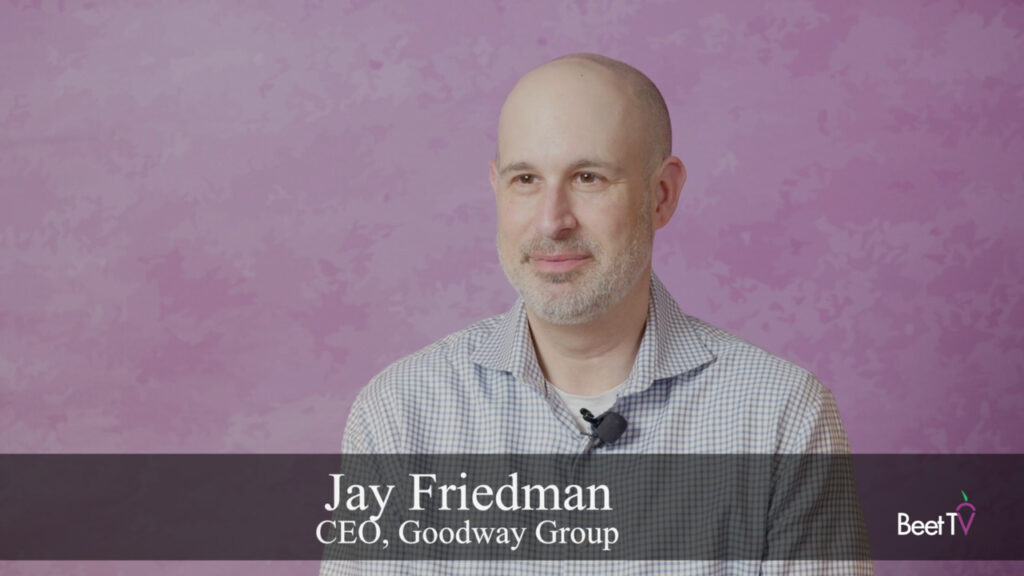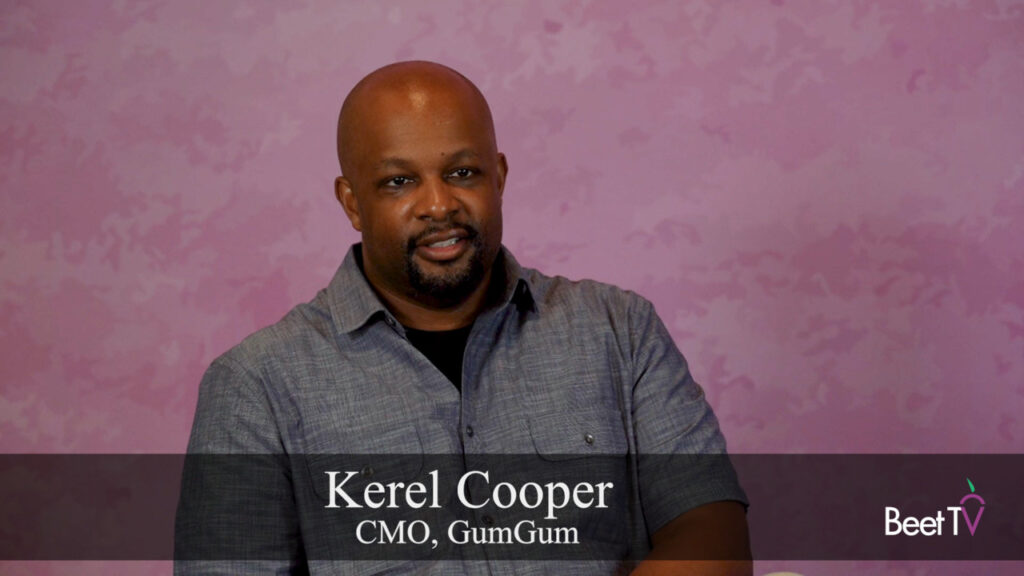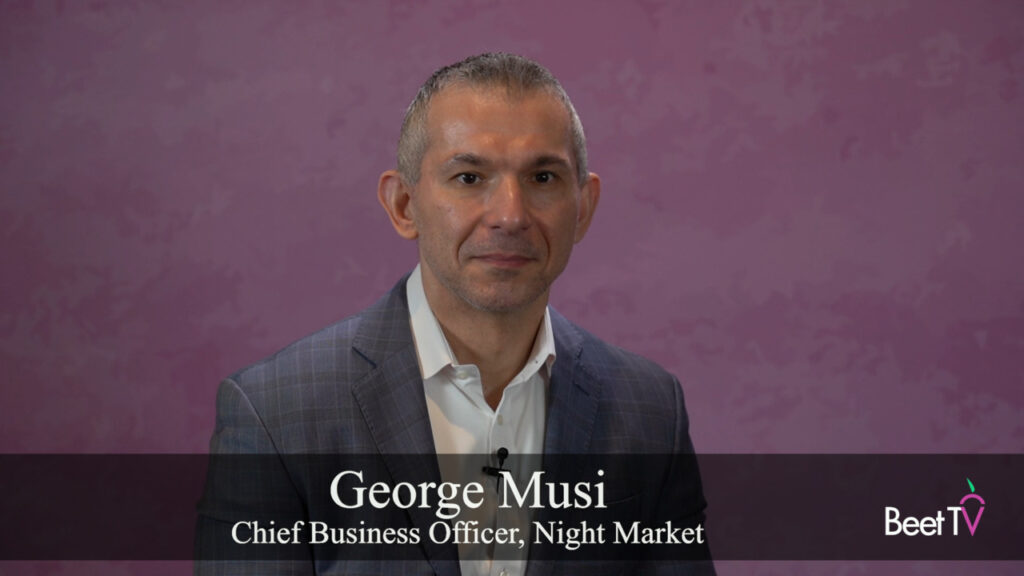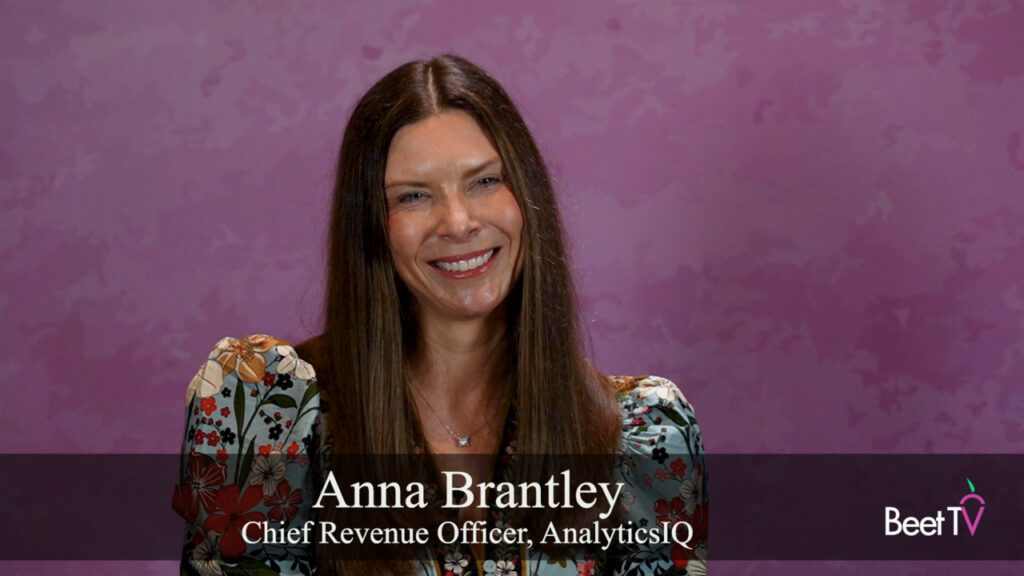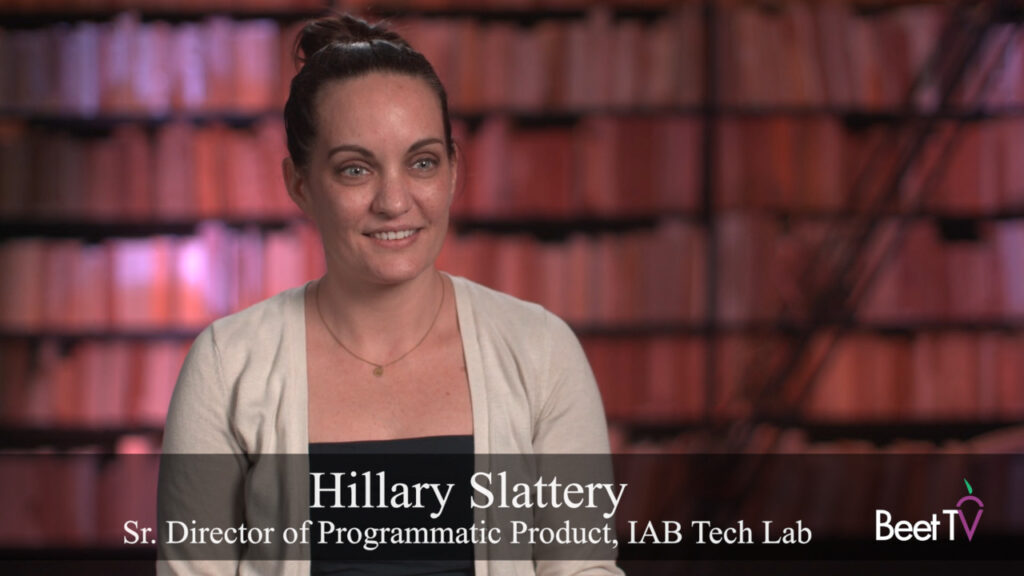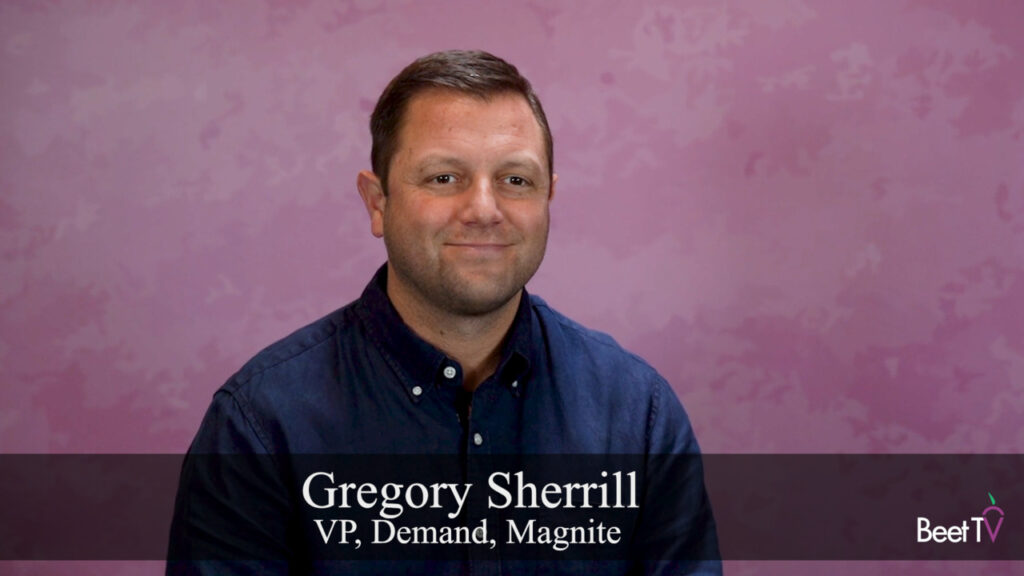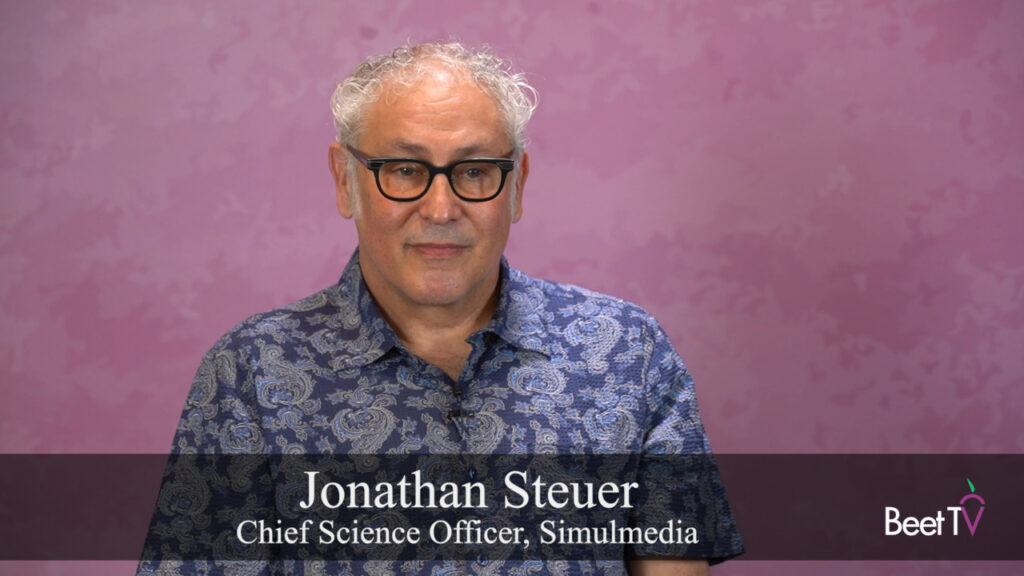People who are closest to the day-to-day nexus of data and technology are usually the first to discern meaningful turning points. For Evan Hanlon, that insight emerges as he considers years of industry talk, hopes and dreams. “I feel like we’re turning the corner beyond the sort of aspirational and the dream and all the good stuff and we’re starting to think a lot more about the other side of it,” says the President of GroupM’s [m]PLATFORM, US.
So what’s on the “other” side?
“Does it work? Is it valuable? What are the ramifications for it in a rapidly changing legal environment?” Hanlon adds in this interview with Beet.TV, in which he also talks about the limits of automating creativity and observes how competitive walls are rising in digital but falling in television.
[m]PLATFORM is GroupM’s means of spreading a wealth of data and technology prowess—and how to most effectively harness the two—across the multitude of WPP entities, many of them advertising or media agencies.
Hanlon says reverberations from the EU’s recently activated GDPR, which represents a tightening of data privacy restrictions, are “starting to find its way into the United States as well and forcing clients, particularly large global clients that we work with, to sort of really rethink how they think about their consumers and what is valuable to them from a data and technology perspective.”
The reasons are clear: it can cost more to properly manage and safeguard customers’ data under GDPR, which while quite voluminous in verbiage isn’t crystal clear to marketers at this point with regard to what definitively constitutes non-compliance and the specific financial consequences.
Nonetheless, when having a serious conversation about the realistic value of customer data, “I think what’s interesting is that the answer has been no as much as it’s been yes,” says Hanlon. He stresses that “no” isn’t inherently bad because getting a “concrete answer” carries its own value.
“But what it means is that the opportunity for evolution, for change, is a lot more prominent than I think we would have necessarily anticipated from the conversations that we were having with clients a year or even two years ago.”
When Hanlon addresses the convergence of traditional TV and digital video, he characterizes the conversation around platforms like Google and Facebook as “one that’s slightly negative or closing. All you hear about is the sort of closing down of access and the application of data at an individual level that can happen as policies start to change, as the walls start to get higher.”
By way of contrast, “On the TV side of the world it’s the opposite. We’re seeing an acceleration into a world of addressability and an ability to think about things from a cross-channel perspective.”
As for limits on hyper personalization of ad messaging, Hanlon questions the idea that “we can fully automate creativity and that we can create an individual experience for every single person that we ultimately see within the ecosystem.”
Such an approach ignores “very key reasons how we build brands and how we build resonance and salience. It may make a lot of sense within a retargeting context, but when it comes to these larger TV and video-based executions, we’re never going to be able to get to a space, I think, nor do we want to, where we personalize it for every single person.”
This video is part of The Road to Cannes, a preview of topics to be addressed at Cannes Lions. The series is presented by the FreeWheel Council for Premium Video. For more videos from the series, please visit this page. FreeWheel is a Comcast company.






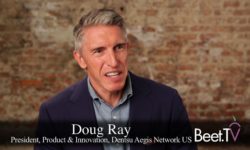
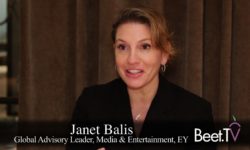

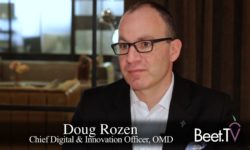
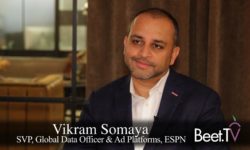
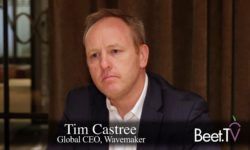
![Television Advances As Consumers Choose Interactive Advertising, true[X] Midha explains](https://www.beet.tv/wp-content/uploads/2018/05/pooja-midha2-thumbnail-250x150.png)



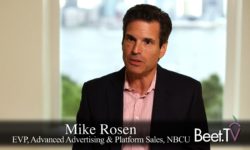
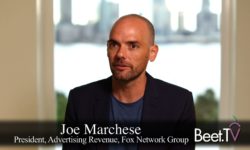
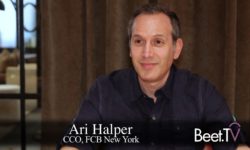
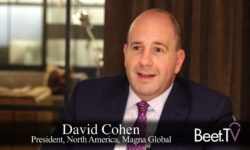
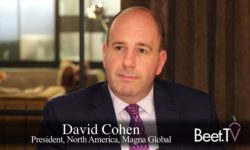
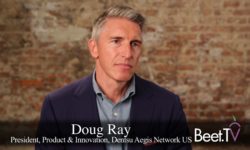
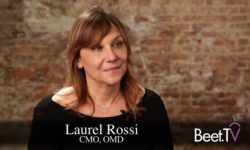

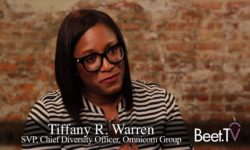
![New true[X] President Midha Looking To Leverage The ‘Connected Living Room’](https://www.beet.tv/wp-content/uploads/2018/05/pooja-midha-thumbnail-1-250x150.png)
